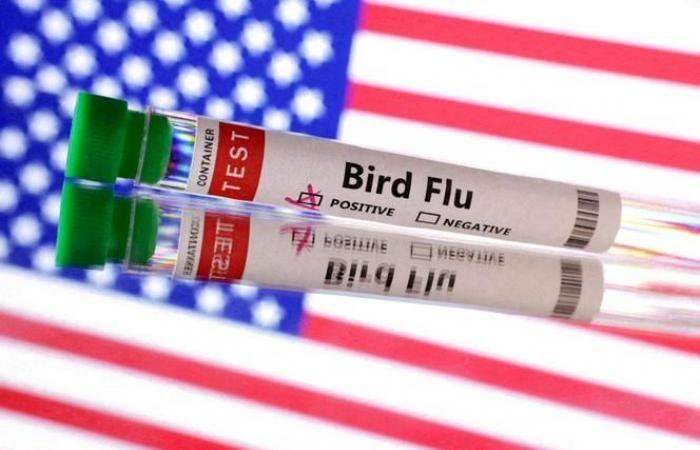A first human death linked to avian flu was recorded in the United States, Louisiana state health authorities announced Monday, January 6, specifying that it was a patient who suffered from other pathologies. This patient, aged over 65, was the first serious human case detected in the United States. He had been contaminated by the H5N1 virus via farmyard and wild birds.
Suffering from a respiratory illness, he was “critical condition”health authorities reported in December 2024, when his hospitalization was made public.
The public health survey carried out “failed to identify additional cases of H5N1 or evidence of person-to-person transmission. This patient remains the only human case of H5N1 in Louisiana. »specifies the Ministry of Health of this southern state, on its website. This is why he considers that the risk posed by avian flu for the general public remains ” weak “. “People who work with birds, poultry or cows, or who are exposed to these animals as part of their leisure time” they run “higher risk”.
Read also | First serious case of bird flu detected in humans in the United States
Read later
Genetic sequencing of the virus found in the Louisiana patient showed it was different from the version detected in several dairy herds and poultry farms. And a small portion of the virus showed genetic changes suggesting it may have mutated inside the body to adapt to human airways.
A level of virus circulation that worries experts
Sixty-six cases of avian flu in humans have been detected in the United States since the start of 2024, the vast majority being mild. But others could have gone unnoticed, recognize the American authorities. Even more worrying, the virus has been detected in recent months in a handful of individuals without known contact with an infected animal.
Even if no spread of the disease between humans has nevertheless been observed, the level of circulation of the virus worries experts, particularly in the run-up to the inauguration of Donald Trump, who has expressed his wish to eliminate an agency responsible for epidemic preparedness. risks.
Read also | Avian flu: the United States announces an envelope of more than 300 million dollars to fight against the disease
Read later
The outgoing administration is, for its part, not exempt from criticism, with some experts deeming its response insufficient and warning of shortcomings in monitoring contamination.
The authorities nevertheless announced on Friday that they would release 306 million dollars (around 297 million euros) to strengthen the national response to this threat by notably supporting epidemiological surveillance programs and medical research. “Even though the risk to humans is low, we always prepare for all possible scenarios”said US Health Minister Xavier Becerra in a statement.
Risk of viral mutation
For several months, the country has been facing an epizootic – the equivalent of an epidemic in animals – of avian flu. The virus circulates in poultry farms and cattle herds.
Bulletin
“Human warmth”
How to face the climate challenge? Every week, our best articles on the subject
Register
Avian influenza A (H5N1) first appeared in 1996, but since 2020 the number of outbreaks in birds has exploded and an increasing number of mammal species have been affected. Experts fear that high circulation of the virus could facilitate a mutation allowing its transmission from one human to another. Some also worry that it could mix with seasonal flu.
However, such a mutation is not the only one necessary to make a virus more contagious, or even transmissible between humans, according to researchers interviewed by the Agency -.
Read also | Article reserved for our subscribers Avian flu: state of emergency declared in California
Read later
“Although tragic, a death from H5N1 in the United States is not unexpected”also reminded the US Centers for Disease Prevention and Control (CDC) of the death reported in Louisiana. “Outside the United States, more than 950 cases of H5N1 avian influenza have been reported to the World Health Organization. [OMS], and about half of them resulted in death »they report in a press release.
These human cases were recorded between 2003 and the end of 2024 in twenty-four countries, including a large number in China and Vietnam, specifies a WHO document.






